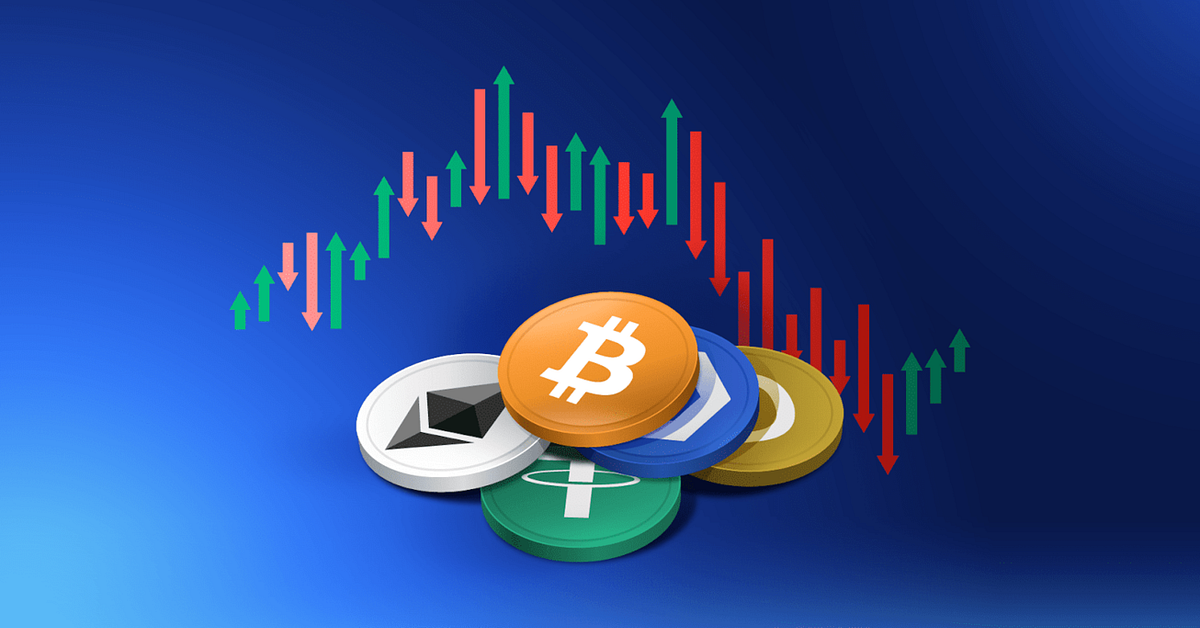What you need to know as the Bitcoin frenzy hits the headlines

In the coming days and months, expect a sea of Bitcoin headlines — a buzz of price surges, judgments about its “environmental impact,” and debates over its “speculative nature” and “volatility.” With so much swirling around, myths and mixed truths can start blending together fast.
That’s why I’ve put together this guide to clarify the most common misconceptions about Bitcoin, so you can get a clear sense of what it really is (and what it definitely isn’t).
Ready to dive in? Let’s set the record straight.
#1 Bitcoin is a Scam
Bitcoin is officially recognised as a legitimate asset by key financial authorities, such as the U.S. SEC, which classifies it as a commodity and has approved Bitcoin ETFs. It’s essential to understand that Bitcoin is fundamentally different from other so-called “cryptocurrencies” or “altcoins.” While many of these alternatives operate more like companies — with centralised control, profit motives, and regulatory classification as securities — Bitcoin stands apart.
Bitcoin, by contrast, has no central ownership or controlling body — it’s an open, decentralised network upheld by consensus mechanisms by its users. This distinction is fundamental to understanding Bitcoin’s value and legitimacy.
Major banks and investment firms now recommend a Bitcoin allocation as part of a diversified portfolio — even for those skeptical of its larger use case — as it serves as a hedge against inflation and offers uncorrelated returns.
#2 Bitcoin is a Ponzi Scheme
A Ponzi scheme depends on a constant stream of new participants to fund returns for earlier investors. Without this influx, the scheme inevitably collapses. If anything, fiat currencies resemble this structure: they require continuous debt creation and expansion to sustain value. Inflation erodes fiat money’s worth over time, compelling governments to issue more currency and encourage borrowing to avoid economic stagnation. Without new participants taking on new debt, fiat systems risk collapse — historically, every pure fiat currency system has eventually imploded under this unsustainable pressure.
Bitcoin, however, operates differently. It’s deflationary, with a fixed supply, and doesn’t rely on new debt or users to retain its value. Instead, Bitcoin’s value comes from its scarcity and secure, decentralised structure, making it resilient without needing perpetual economic expansion. This makes Bitcoin fundamentally the opposite of a Ponzi scheme; it’s a system built for long-term value preservation rather than requiring constant new inflows.
#3 Bitcoin is Too Slow for Everyday Transactions
A common misconception is that Bitcoin is too slow and costly for daily transactions, making it unsuitable as a new form of money. Critics often compare it to faster, centralised payment systems. However, Bitcoin’s base layer (Layer 1) was intentionally designed NOT to handle high transaction volumes but rather to prioritise decentralisation and protocol integrity over speed. Attempting to prioritise scalability on the base layer would have compromised Bitcoin’s core attributes of decentralisation and security.
For daily transactions, the Lightning Network (a non-custodial Layer 2 solution) addresses scalability by enabling instant, low-cost payments off-chain, which are then securely settled on Bitcoin’s Layer 1. This layered approach allows Bitcoin to maintain its decentralisation and security at its core, while making it practical for everyday payments and scalable for global use.
#4 Bitcoin is Bad for the Environment
Not only is this claim outright false, but it’s the reverse: Bitcoin addresses one of the core drivers of environmental degradation — an inflationary economy that demands perpetual growth. Inflation incentives overconsumption and resource depletion, prioritising short-term profits over long-term sustainability. This system creates an unsustainable cycle of strip-mining natural resources, destabilising ecosystems, and worsening pollution to keep up with the growth demands of an expanding money supply.
Bitcoin, by contrast, operates on a fixed supply, promoting long-term value preservation over immediate consumption. By aligning incentives with conservation rather than consumption, Bitcoin mining is a stabilising force for renewable energy and grid efficiency. It turns otherwise wasted energy into economic value and even contributes to stabilising renewable energy sources, which often suffer from intermittency.
It’s the author’s opinion that you cannot genuinely claim to care about the environment without supporting Bitcoin, a position he elaborates on in this piece.
#5 Bitcoin is Too Volatile
Misinformed critiques often focus on Bitcoin’s volatility, calling it too unpredictable to be a stable store of value. However, volatility is the price you pay for Bitcoin’s transformative potential. Historically, Bitcoin has been the best-performing asset of the past decade, far surpassing gold and stock portfolios. This performance comes with short-term ups and downs, but these fluctuations are what drive Bitcoin’s powerful returns.
To truly understand volatility, you need to consider the alternatives. With fiat currencies, even in the best-case scenario, devaluing at rates as high as 7% annually — and much worse in cases of hyperinflation — the value stability of fiat money is largely an illusion. Bitcoin offers a decentralised, sound money alternative that preserves value over time. While Bitcoin may feel “bumpy” now, as adoption and market depth grow, its volatility is expected to decrease, much like early markets in the U.S. eventually stabilised.
The choice isn’t about avoiding volatility but choosing what side of the volatility you want: the long-term upside of a deflationary economy or the guaranteed erosion of savings under fiat money.
#6 Bitcoin Merely Replaces One Power Elite for Another
Bitcoin doesn’t recreate existing power structures only in a new form; it dismantles them completely. In the fiat system, the wealthy gain and maintain power by staying close to money creation, benefiting from policies like low-interest loans and debt-fueled asset inflation. Bitcoin, however, is structurally immune to manipulation: with a fixed supply, decentralised governance, and no central authority, no one — no matter how wealthy — can increase its supply or control its issuance. By holding Bitcoin, traditional elites don’t gain power; instead, they reinforce a system they can’t exploit.
As adoption grows, Bitcoin transforms the wealth game. Without inflationary tools to manipulate, wealth creation in a Bitcoin economy relies on real value, not proximity to money printers. This forces old players to contribute value or hold assets passively, benefiting everyone else by increasing their purchasing power. Bitcoin represents a system built on equity, with inherent equal rights for all, pushing exploitative methods of power accumulation to the fringes and establishing a sustainable economic model driven by genuine contributions.
#7 Bitcoin Doesn’t Have Intrinsic Value
Intrinsic value refers to something we value “in itself” — for its own sake, not merely as a means to an end. Gold is known for its intrinsic value, prized for thousands of years not only for its beauty but also for its historical uses in jewellery and industry as a highly conductive, non-corrosive metal. These qualities, combined with its scarcity, give it lasting worth and make it naturally suitable as money.
Bitcoin, like gold, is scarce, though its scarcity is absolute — capped at 21 million coins with no possibility of increase. However, Bitcoin’s intrinsic value can’t be explained merely as a result of its scarcity; scarcity alone doesn’t necessarily create value, as something undesirable yet scarce wouldn’t be valuable. Bitcoin’s worth arises from its unique role as the world’s first and only decentralised, incorruptible ledger — a record immune to tampering or control by any third-party. This characteristic allows Bitcoin to serve as the foundation for an economy built from the bottom up rather than controlled from the top down — empowering individuals worldwide by placing power back into their hands and ensuring that institutions serve them, not the other way around.
In this way, Bitcoin achieves something even gold cannot, as it was always vulnerable to confiscation and manipulation: it establishes intrinsic value rooted in truth. This gives Bitcoin value beyond scarcity, beyond technology, making it not only “digital gold” but also a groundbreaking tool for one of the most intrinsically valuable qualities in human history.
#8 Bitcoin is Only for Criminals
The reality is that Bitcoin is increasingly adopted by mainstream institutions, governments, and individuals worldwide. Cash remains the currency of choice for most illicit activities, yet we don’t condemn cash as inherently criminal. Bitcoin’s transparent ledger, which permanently records transactions, in many cases makes it a poor choice for crime, as activities are traceable. Bitcoin continues to gain traction for its transparency, security, and potential to enhance financial freedom and inclusion globally.
In fact, Bitcoin’s design offers a unique solution for those marginalised by traditional financial systems. For individuals oppressed by authoritarian regimes, refugees fleeing unsafe conditions, people discriminated against by banks, and those without government documentation, Bitcoin is a means of securing and transferring wealth independently. Bitcoin allows everyone, from dreamers to the displaced, a chance to participate in a truly inclusive financial network, where self-sovereignty is accessible to all.
We’ve spent a lot of time here breaking down what Bitcoin isn’t. But what, then, is Bitcoin? At its core, Bitcoin is freedom technology. It offers everyone, including those most marginalised by traditional finance, the ability to reclaim their power and build true equity in a system that can’t be exploited or manipulated by anyone. There’s nothing inherently radical about the new economic system that Bitcoin enables — it only seems that way when compared to today’s flawed system. If anything, it’s radically intuitive: it diverges from a broken status quo to ensure the global economy functions as it was always meant to — for everyone.
“If a decentralised spreadsheet threatens your system, it’s not the decentralised spreadsheet that is the problem. It’s your system.” — Lyn AldenExpand Your Knowledge
For a deeper understanding, I encourage you to read further and do your own studies. Bitcoin is a new way of thinking, and the only way to truly grasp its potential is through your own exploration. You haven’t missed the opportunity — every person who puts in the hours to study it strengthens the network and takes us closer to a world built on equity and truth.
This journey is just beginning. Welcome to the future.
Writing by myself
- This Changes Everything: Ten Principles to Understand the World Economy
- Centralisation vs Decentralisation: Crafting a Coherent Understanding
- Why the Left and the Right are Both Wrong & Why it Does Not Matter
- Killing the Myth: Government vs Decentralisation
- Opting In: How Bitcoin Appeals to the Old System’s Deepest Flaw to Radically Transform It
- Why Being Stranded on an Island Explains Everything You Need to Know About Inflation
- If You Care At All About the Environment, You Must Support Bitcoin
Podcast Episodes
- Forward with Andrew Yang and Jeff Booth
- Jeff Booth — We are in fold 34: How exponentiality will change our understanding of economics
- Michael Saylor at BTC Prague 2023
- How the IMF & World Bank Exploit Poor Countries with Alex Gladstein
Literature
- The Bitcoin Standard by Saifedean Ammous
- The Price of Tomorrow by Jeff Booth
- Hidden Repression by Alex Gladstein
- Broken Money by Lyn Alden
- Bitcoin is Venice by Allen Farrington and Sacha Meyers
- A Progressive’s Case for Bitcoin by Jason Meier
Strong voices
- Jeff Booth (Author and Thinker)
- Alex Gladstein (Chief Strategy Officer at Human Rights Foundation)
- Michael Saylor (Fmr. CEO MicroStrategy)
- Margot Paez (Host of The Progressive Bitcoiner Podcast)
- Saifedean Ammous (Economist)
- Jason Meier (Author and Maths teacher)
- Peter McCormack (Host of Mr. Obnoxious Podcast)
- Lyn Alden (Economist)
Bitcoin price as of this writing: 89,034 USD
Your Go-To Guide to Debunking Common Bitcoin Myths was originally published in The Capital on Medium, where people are continuing the conversation by highlighting and responding to this story.

 3 months ago
133
3 months ago
133








 English (US) ·
English (US) ·